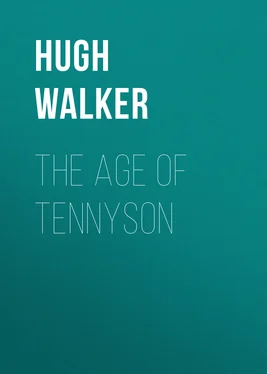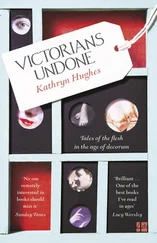Hugh Walker - The Age of Tennyson
Здесь есть возможность читать онлайн «Hugh Walker - The Age of Tennyson» — ознакомительный отрывок электронной книги совершенно бесплатно, а после прочтения отрывка купить полную версию. В некоторых случаях можно слушать аудио, скачать через торрент в формате fb2 и присутствует краткое содержание. Жанр: foreign_antique, Критика, literature_19, на английском языке. Описание произведения, (предисловие) а так же отзывы посетителей доступны на портале библиотеки ЛибКат.
- Название:The Age of Tennyson
- Автор:
- Жанр:
- Год:неизвестен
- ISBN:нет данных
- Рейтинг книги:5 / 5. Голосов: 1
-
Избранное:Добавить в избранное
- Отзывы:
-
Ваша оценка:
- 100
- 1
- 2
- 3
- 4
- 5
The Age of Tennyson: краткое содержание, описание и аннотация
Предлагаем к чтению аннотацию, описание, краткое содержание или предисловие (зависит от того, что написал сам автор книги «The Age of Tennyson»). Если вы не нашли необходимую информацию о книге — напишите в комментариях, мы постараемся отыскать её.
The Age of Tennyson — читать онлайн ознакомительный отрывок
Ниже представлен текст книги, разбитый по страницам. Система сохранения места последней прочитанной страницы, позволяет с удобством читать онлайн бесплатно книгу «The Age of Tennyson», без необходимости каждый раз заново искать на чём Вы остановились. Поставьте закладку, и сможете в любой момент перейти на страницу, на которой закончили чтение.
Интервал:
Закладка:
One aspect of Carlyle’s work not always duly recognised is its concentration of purpose. Superficially viewed, it has the appearance of a heterogeneous miscellany. Essays, literary, historical and mixed, biographies and mythical autobiography, histories drawn from different centuries and different peoples, idealised pictures of the past, and fierce pamphlets, not at all idealised, on questions emphatically of the present, succeed each other in his volumes. The very records of his literary life help to confirm this impression. No sooner has he finished one important work than he casts about to discover a subject for another. He makes no nation and no century specially his own, as it is the custom of the modern historian to do. In his longer works he jumps from the French Revolution to Cromwell, and from Cromwell to Frederick the Great. He seems to have been turned to the second subject almost by accident. He had been asked by Mill to write on Cromwell in the London and Westminster Review . ‘There is nothing,’ says his biographer, ‘in his journals or letters to show that Cromwell had been hitherto an interesting figure to him.’ The projected magazine article was turned into a book through the impertinence of Mill’s substitute, who in the absence of his superior wrote to Carlyle that he ‘need not go on, for “he meant to do Cromwell himself.”’ The choice of Frederick seems to have been hardly less fortuitous, and in itself it was more surprising than the choice of Cromwell.
Yet under this diversity it is always possible to detect a unity both of purpose and of effect. In the first place, there is the unity of Carlyle’s own character. Everything he wrote was self-revealing; and it is scarcely too much to say that his whole works are an expansion and, as circumstances demanded, a modification, of the autobiographic Sartor Resartus . We see this in many ways. Carlyle is best when the conditions under which he works are such as to allow himself to appear freely, naturally, spontaneously, without fierce invectives and exaggeration. This, in his case, generally implies similarity without personal contact, or with contact from which the aspect of possible competition is removed. He is worst of all where there is a partial similarity without sympathy. Thus, the best perhaps of Carlyle’s literary essays is that on Burns; and the reason why it is best is that Burns was in some ways so like himself. Both sprang from the Scottish peasantry, and the minds of both were deeply coloured by the experiences of their early youth. In writing of Burns and his father, Carlyle never forgets himself and his own father. On the other hand, the essay on Scott is certainly among the worst of his essays, just because Scott is at once too near to him and too far from him. Scott belonged to a different class in society, pursued different aims, and had a widely different literary history from Carlyle. Yet both were Scotch, and in the blood which they inherited as well as in the mental and moral food on which they were nourished there was much to bring them together. The same contrast is illustrated by the Reminiscences . There, every reference to his own family is distinguished by clear comprehension and profound sympathy; while, unfortunately, nearly every reference to contemporaries not related to him by blood is disfigured by acrimony and depreciation. In the Life of Sterling friendship performs the function which blood-relationship performs in the Reminiscences . The essays on foreign writers, both French and German, deal with men much farther removed from Carlyle than Scott was; and if they have not that depth of sympathy and that fineness of perception which are the charm of the essay on Burns, they are free from the bitterness and ungenerous depreciation which mar the essay on Scott. Take, for example, Carlyle’s treatment of Goethe. In many ways the great German was almost as far removed as it was possible to be from his Scotch disciple. Yet Carlyle’s comprehension is clear, his appreciation ready, his criticism wise. We see himself in it all, but just because of their wide differences his own image never blurs that of Goethe.
It will be found that the principle underlying Carlyle’s choice of historical themes was similar. He was bound to reveal himself ; but Carlyle’s self was a particular view of the universe. His subject therefore must illustrate this. He was naturally attracted to the French Revolution. It is the greatest movement of recent history; and Carlyle invariably sought for lessons for the present. It dealt the death-blow to many shams and hypocrisies; and Carlyle waged a life-long war against these. While its creed was the equality of men, no great movement has ever more vividly illustrated their great and inevitable inequality; and Carlyle rejoiced to see the truth assert itself in spite of the prepossessions of a victorious mob, and rejoiced to point to the confirmation of his own favourite doctrine. Again, though Cromwell seems to have been brought to his mind almost by chance, the points of contact between the hero and his historian are sufficiently obvious. Cromwell’s strength, his thoroughness, his roughness, his veracity, his piety, all contributed to endear him to Carlyle. The ‘Calvinist without the theology’ was fundamentally in sympathy with the great English Puritan. His boyhood and early training fitted him, better perhaps than any other training of the nineteenth century could possibly have done, to sympathise with the opinions of the Puritan of the seventeenth. It was the instinct which draws like to like that made him welcome the first suggestion of Cromwell as a subject; just as the same instinct made him afterwards ponder upon Knox as another possible subject.
The choice of Frederick is certainly that which requires most explanation, for in many ways his character seems strangely foreign to anything likely, a priori , to attract Carlyle. Complete explanation is perhaps not possible, but partial explanation certainly is. We must remember Carlyle’s worship of force. He had been preaching all his life a form of the doctrine, might is right; and, as was usual with him, the doctrine had grown more extreme under contradiction and opposition. Thus we have the Nigger Question and the Iliad in a Nutshell . There is an element of truth in the doctrine, and under Carlyle’s original application of it there had been a well-marked moral foundation, so that it could have been in many cases altered to read, ‘right is might.’ He meant not merely that ‘Providence is on the side of the heaviest battalion,’ but quite as much that the battalion is heaviest because Providence is on its side. In other words, he believed that the forces of the universe are moral forces and that true and permanent success mean being in harmony with them. As time went on however the qualifications were gradually stripped off, and latterly what Carlyle worshipped was little better than naked force. Now, in all the eighteenth century he could hardly have found a better example of successful force than Frederick. Destitute as he was of the piety of Carlyle’s previous hero, he was at least an eminently successful governor, and Carlyle respected nothing so much as the faculty for the genuine government of men, not what he would have called sham government, the kind of government which follows while it seems to lead. If Frederick had not created a state, he had raised it from a position bordering on insignificance to one not far from the front in the European system. Moreover, this state was peculiarly interesting to Carlyle, for he saw in Prussia the future head of Germany, and in Germany a possible leader of Europe. These reasons induced him to turn to Frederick, and perhaps tempted him to clothe Frederick with attributes which were not all his. For the method of hero-worship has its dangers, and only prejudice would assert that the great hero-worshipper, keen as was his insight into character, has wholly escaped those dangers.
Читать дальшеИнтервал:
Закладка:
Похожие книги на «The Age of Tennyson»
Представляем Вашему вниманию похожие книги на «The Age of Tennyson» списком для выбора. Мы отобрали схожую по названию и смыслу литературу в надежде предоставить читателям больше вариантов отыскать новые, интересные, ещё непрочитанные произведения.
Обсуждение, отзывы о книге «The Age of Tennyson» и просто собственные мнения читателей. Оставьте ваши комментарии, напишите, что Вы думаете о произведении, его смысле или главных героях. Укажите что конкретно понравилось, а что нет, и почему Вы так считаете.












